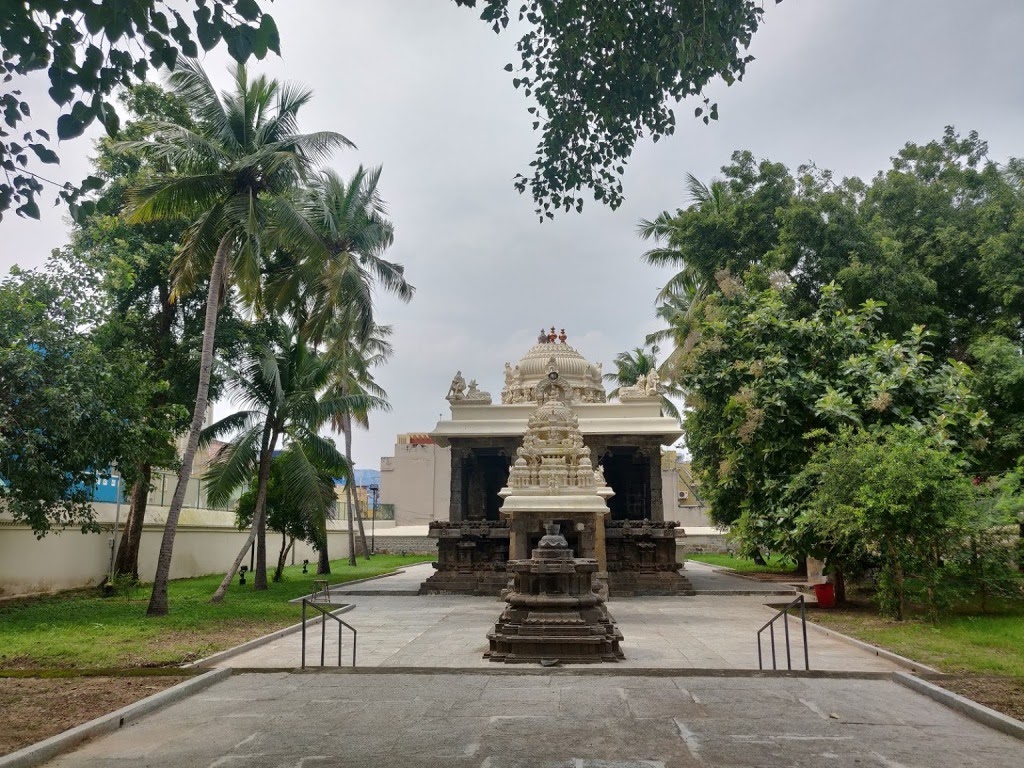Kanchipuram Sri Jurahareswarar (Iravatanesvara) Temple

Address
Kanchipuram Sri Jurahareswarar (Iravatanesvara) Temple, Ekambaranathar Sannathi St, Periya, Kanchipuram, Tamil Nadu 631502 Mobile: +91 99941 93853 / 98428 04545
Deity
Jurahareswarar/ Iravatanesvara
Introduction
- Jurahareswarar Temple, also known as Iravatanesvara Temple or Juragaresam, is dedicated to Lord Shiva and is located in Kanchipuram City, Tamil Nadu.
- The temple is one of the 108 Shiva temples mentioned in the Kanchi Puranam.
- It is situated near the Pandava Thoothar Perumal Temple, south of Sannidhi Street, close to the Ekambareswarar Temple in Kanchipuram.
Puranic Significance
- The temple was built by the Pallava King Rajasimha (Narasimhavarman II) between 700 and 729 AD.
- It is a protected monument, maintained by the Archaeological Survey of India.
- According to legend, Lord Shiva killed the demon Juraha here, earning the name Jurahareswarar.
- Veppu Erinathar: It is also believed that Lord Shiva cures fever and heat-related diseases of devotees. The word Veppu or Juram means fever in Tamil, hence Shiva is also known as Veppu Erinathar.
Beliefs
- Worshipping Lord Shiva in this temple is believed to cure ailments, especially fevers and heat-related conditions, helping devotees maintain normal body temperature.
Special Features
- The temple faces east and has a three-tiered Rajagopuram (gateway tower).
- A Nandi statue housed in a four-pillared Mandapa and a Balipeedam can be seen after the Rajagopuram, both facing the sanctum.
- Another Nandi is present in a Mandapam in front of the Mukha Mandapam.
- The sanctum sanctorum consists of the Sanctum, Antrala, Maha Mandapam, and Mukha Mandapam, located about 3 feet below ground level.
- The Mukha Mandapam can be accessed through steps from both the northern and southern sides.
- The pillars in the Mukha Mandapam are adorned with floral designs.
- Sculptures of Sankha Nidhi and Padma Nidhi can be seen at the entrance of the Maha Mandapam, along with miniature sculptures of Brahma, Vishnu, Shiva, Parvati, and Ganesha.
- The presiding deity, Jurahareswarar, is housed in the sanctum in the form of a Lingam. It is one of the 64 formless forms of Lord Shiva.
- The sanctum has a circular shape, a unique architectural feature, often mistaken for the Gajabrusta style.
- The Vimana (temple tower) over the sanctum has two tiers and is of circular conical shape, following the Vesara style, and is made of brick. It features stucco images such as Sadasiva Moorthy and Sarabeswarar.
- The sanctum has niches with carvings indicating that they were meant for Dakshinamoorthy and Durga, but the idols are missing.
- Kamakshi Amman of Kanchi Kamakshi temple is considered the consort of Lord Shiva in this temple.
- Intricate carvings of Bhooda Ganas, dancers, musicians, yazhis, lions, elephants, and depictions of celestial beings and human social life are visible on the temple walls.
- Naga idols can be found near a Peepal tree after the Rajagopuram, including depictions of Lord Krishna on snake Kalinga and a Shiva Linga on top of a Naga.
- Idols of Lord Kubera, Ganesha, and Murugan can also be found in the temple.
- The temple’s associated Theertham (holy water source) is the Vepperi Kulam / Upperi Kulam, located outside the temple complex.
Century/Period/Age
700 and 729 AD
Managed By
Archaeological Survey of India (ASI)
Nearest Bus Station
Ekambaranathar Temple
Nearest Railway Station
Kanchipuram
Nearest Airport
Chennai




